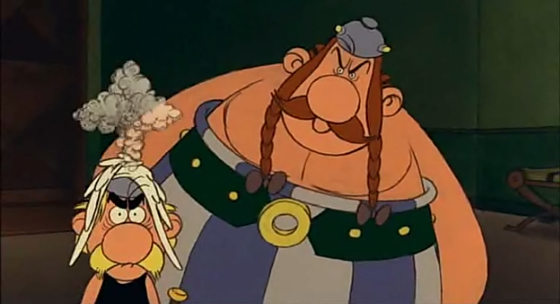For about two weeks now, I've been working as a freelancer. We need a work placement for one of our assignments and I wanted to gain some experience anyway. And hey, I even get paid for this. While the project itself is running pretty well, I discover the bureaucratic difficulties in working freelance.
It's like finding permit A38. Some of you are probably too young to know what I mean. One of the tasks of Asterix & Obelix in the 1976 (ok, I'm not that old, but I've watched it in my childhood) movie "The twelve tasks of Asterix" is finding the permit A38 in the place that sends you mad.
You can watch the scene here. The fun thing about that task is that people keep sending him somewhere else and back and forth again to get that permit. And he needs a lot of other permits which eventually almost drives him mad.
And while I am not looking for a permit A38, I am indeed looking for information on how to work as a freelancer tax- and insurance-wise. Did no one print a leaflet?
On the website of the HMRC, you can make a test to find out if you need to pay taxes. Well, for that money I earn on my project, I don't need to pay taxes. But don't I need an insurance number? Don't I need to register anywhere? I'm confused.
But hey, the uni will probably help me with that, won't it? That's what I thought. So I went to Students First, they can usually help you with everything/know who can help you. They sent me to the Employability Desk. The girl there wanted to send me to Students First. Or Solent Creatives. Or the Finance Department. Now you know, why I feel like Asterix with his task.
 |
| Source: http://www.midnightonly.com/wp-content/uploads/2012/04/twelve-tasks-of-asterix-11.jpg |
I feel like running around with no one being able to tell me what I actually need to do. I struggle with bureaucratic stuff in Germany already, I don't need that in another language...
Maybe I am being too German? Germans need regulations and instructions on everything, don't they?This is one of the few times I actually admit: It does make sense to have regulations like these (if I were to work freelance in Germany, I would need to google it once and know what to do...). I am now in need of clear instructions on how to proceed next. Because I don't want to end up getting a fine for not declaring my (massive) income...(or whatever can happen...)
...to be continued...



